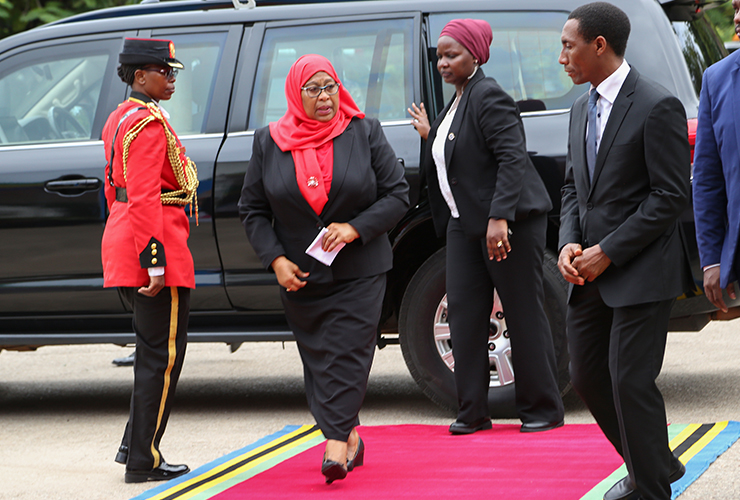The International Press Institute (IPI), a global network of editors, media executives and leading journalists for press freedom, today welcomed President Samia Suluhu Hassan’s decision to lift sanctions imposed on media outlets in Tanzania.
The announcement by Tanzania’s new president, Samia Suluhu Hassan, suspending all bans on media organizations is a welcome first step to improving the press freedom landscape in the country, the International Press Institute (IPI) said today.
News reports said that the president ordered the Ministry of Information, Culture, Arts and Sports to lift all bans on media outlets, though she added that media “must follow the law of the country”.
Hassan, who was sworn in as Tanzania’s president on March 19 following the death of predecessor John Magufuli, has made a radical shift in the media policy. Under Magufuli’s rule, Tanzania experienced a severe press freedom crisis, including arbitrary suspensions and closures of media outlets.
“I have heard there are media that were banned. Reopen them, we should not give them room to say we are shrinking press freedom”, Suluhu Hassan said at the State House in Dar es Salaam. “We should not ban the media by force. Reopen them, and we should ensure they follow the rules.”
“We welcome the decision of the president to lift the ban on media organizations, as it gives us hope that press freedom will improve in the country”, IPI Director of Advocacy Ravi R. Prasad said. “A free press is the bulwark of any functioning democracy and it is the role of the media to hold government accountable for its actions.”
Prasad added: “However, the lifting of suspensions, while an important start, is not sufficient for a sustainable improvement in the media landscape. Lawmakers must urgently bring Tanzania’s media laws in line with international standards to prevent the threat of censorship in the future. In addition, attacks against journalists in recent years must be the subject of serious and thorough investigations to prevent impunity. We look forward to working with the Tanzanian authorities to ensure that the fundamental rights of press freedom and free expression can be fully enjoyed in the country.”
The Tanzania Editors’ Forum (TEF) has also welcomed the president’s announcement and described it as a step towards restoration of freedom of the press in the country. “We are highly pleased by her decision to lift the ban for newspapers, online TVs and social media accounts which she said should be restored immediately”, Deodatus Balile, chairperson of TEF said. “This is highly encouraging, as for quite a long time we had blanket laws which did not define what was prohibited and what was allowed.”
Major shift from past years
Press freedom in Tanzania had dramatically worsened in recent years. In particular, the 2016 Media Services Act allowed the government to shut down media houses, and to suspend publications and broadcasts – powers which were soon applied in practice.
Former President Magufuli was repeatedly accused of suppressing press freedom in Tanzania. Under his government, newspapers and websites were shut down and several journalists were arrested.
An IPI delegation visited Tanzania in April 2019, urging the government to carry out reforms in line with international standards and rulings by regional human rights institutions.
On Wednesday, 17 March, Suluhu Hassan, then the vice-president, announced Magufuli’s death on state TV.
According to media reports, in early March rumours spread on social media about the health and whereabouts of Magufuli, who earned a reputation as a coronavirus sceptic. As a reaction, the government threatened arrests for spreading false information about the president on social media, under Tanzania’s Cybercrimes Act of 2015 and the 2020 Electronic and Postal Communications (Online Content) Regulations.
Last year, on April 16, Mwananchi Newspaper was reportedly fined and banned from publishing online for six months over alleged publication of “fake news”.
In June, the opposition newspaper Tanzania Daima had its licence revoked for allegedly spreading false information.
